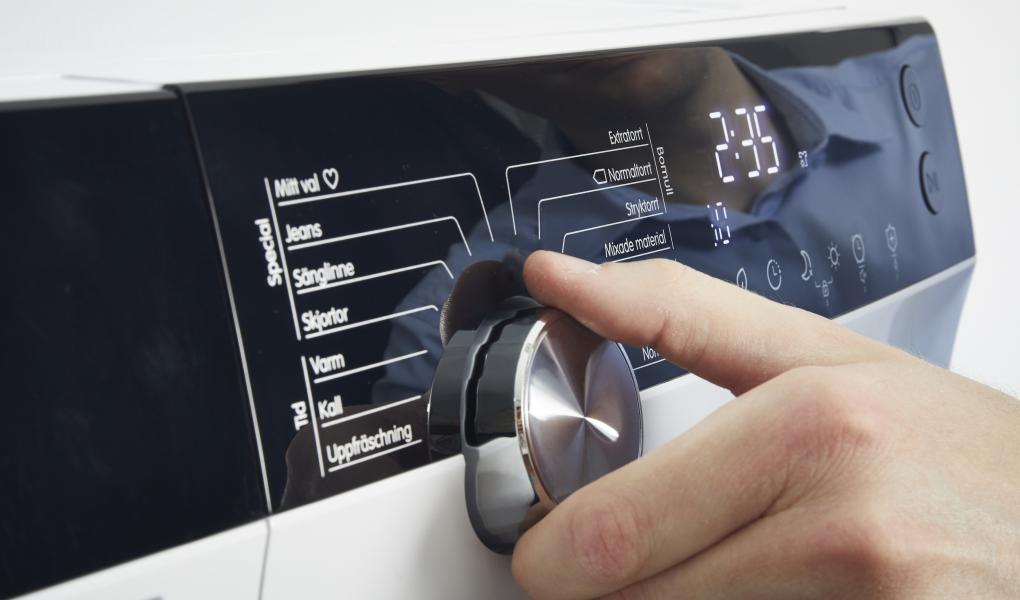The laboratory tests of tumble dryers are based on official requirements and guidelines (EN 61121) and cover the main aspects of drying efficiency, noise level, energy consumption, user-friendliness and design quality and safety.
LABORATORY TEST
1. Functions and specifications.
The laboratory firstly reviews the tumble dryer’s documentation and notes the machine’s functions and other relevant facts.
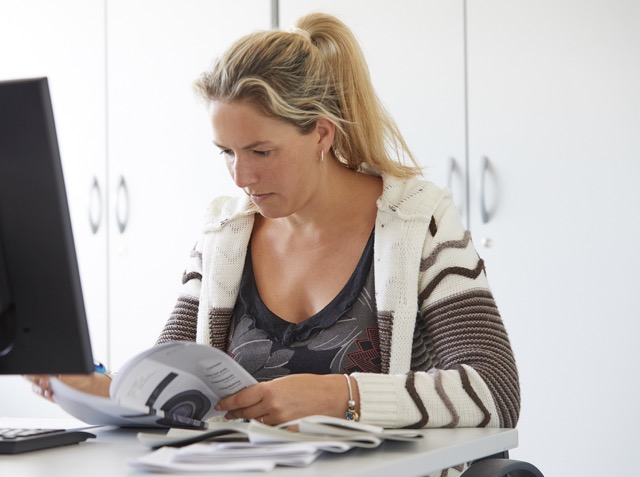
2. Moisture content after drying.
The tumble dryer’s ability to dry the laundry is tested using a standard setting (cupboard dry) for cotton textiles. White cotton textiles are moistened to a moisture content of 50% and the tumble dryer is loaded according to the specified maximum capacity. The moisture content of the laundry after drying is measured by weighing and is compared with the weight before drying. The average value from five drying cycles forms the basis of assessment and rating.
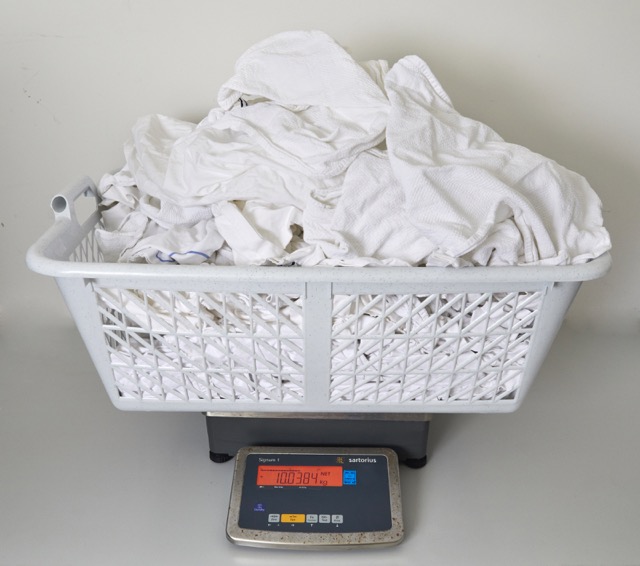
3. Program time.
The total program time is recorded (standard setting for cotton textiles and cupboard dry).
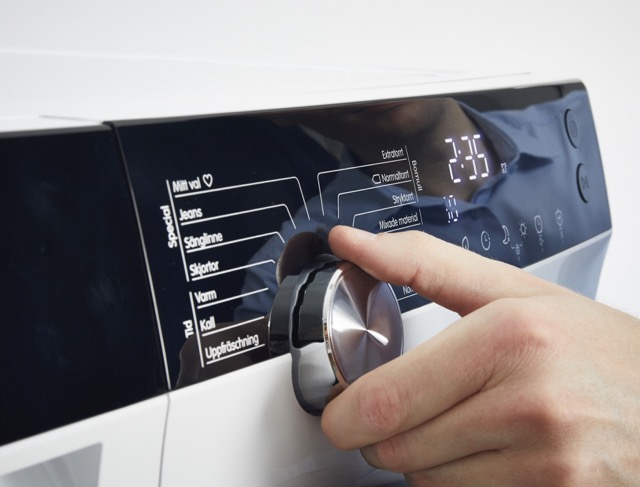
4. Drying results.
Moist white cotton shirts are tumble dried and, after drying, the softness and degree of creasing of the shirts are assessed.
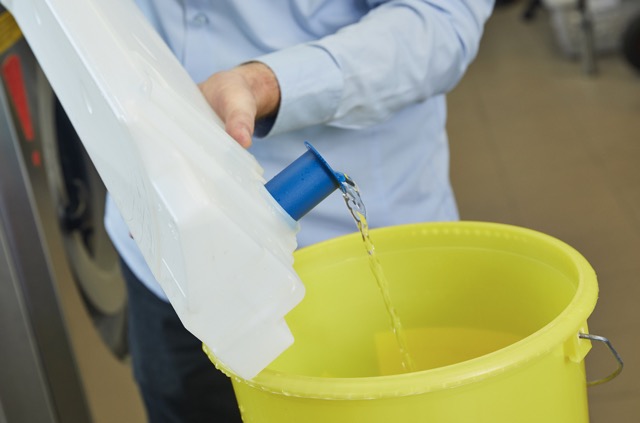
5. Energy consumption.
The total energy consumption during a drying program is recorded and set in relation to the machine’s capacity in kg. The average value from five drying cycles forms the basis of assessment and rating. The lower the energy consumption in kWh per kg, the better the energy efficiency.
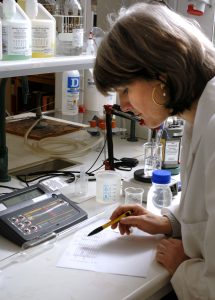
6. Condensation efficiency.
The volume of water that the tumble dryer generates during the drying program is set in relation to the laundry’s original moisture content (water content). The condensation efficiency indicates the proportion of moisture in the laundry that is trapped by the machine and converted to condensation (water). The moisture that is not trapped by the machine escapes into the room. The higher the condensation efficiency, the better. The average value from five drying cycles forms the basis of assessment and rating.
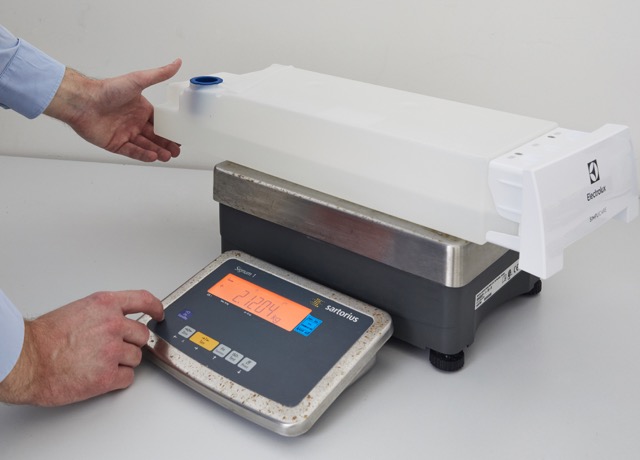
7. Noise level.
The noise level during the drying program is measured according to standard method EN 60704-2-6:2012.
8. User-friendliness
The evaluation of user-friendliness includes the following elements:
- The manual - Installation and start-up - Settings and selection of drying programmes - Buttons, knobs and displays - Emptying and cleaning the filter
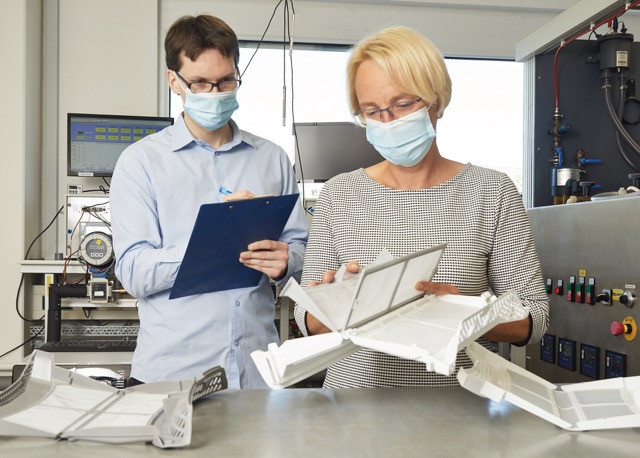
9. Design quality and safety.
An overall assessment of the tumble dryer’s design and quality is performed during the test. The assessment also includes user safety. The presence of sharp edges, larger gaps or other risks of injury is noted, as well as safety deficiencies in electrical connections.
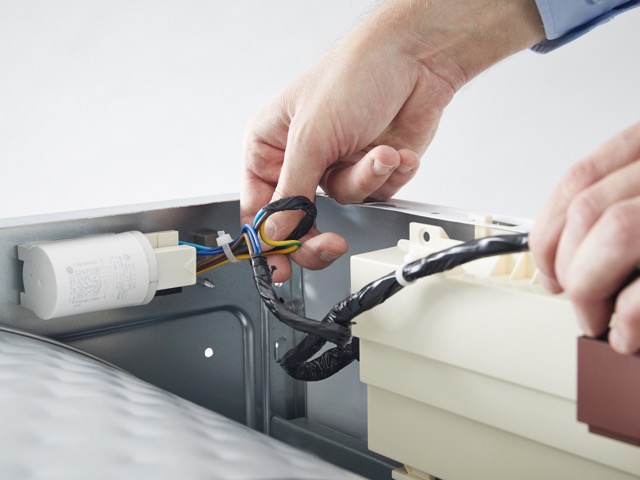
INTERPRETATION AND RATING OF TEST RESULTS
The measurement results from the test are interpreted and rated in consultation with the performing laboratory. The rating is performed on a scale from 1 to 10 where 10 is best. Ratings below 6 are awarded only if the performance is poor or worse than what can reasonably be expected for this type of product. The ratings from the various components of the test are added together for an overall rating with the following weightings:
A. Drying efficiency 50%
- Moisture content after drying 40%
- Program time 25%
- Drying results 25%
- Condensation efficiency 10%
B. Design quality and safety 20%
C. Noise level 10%
D. Energy consumption 10%
E. User-friendliness 10%
CRITERIA FOR TESTFAKTA’S QUALITY LABELLING
Testfakta tests and verifies tumble dryers in different categories. The categorization is performed based on the washing machine’s declared capacity.
Best in test

In a benchmark test with the aim of declaring a test-winning product, “Best in test”, a representative selection of comparable products are tested for a specific market. The tumble dryer that performs the best overall (highest overall rating) is crowned the winner.
Verified Quality & Performance

In a verification test, the tumble dryer is tested independently or in comparison with a few carefully selected reference machines. Evaluation and rating follow the same guidelines as during a benchmark test. The criteria for qualifying for Testfakta Verified Quality & Performance are an overall rating of at least 8.0 (+/- 2.5%) and no sub-rating (A–E above) below 6.0 (+/- 2.5%).

